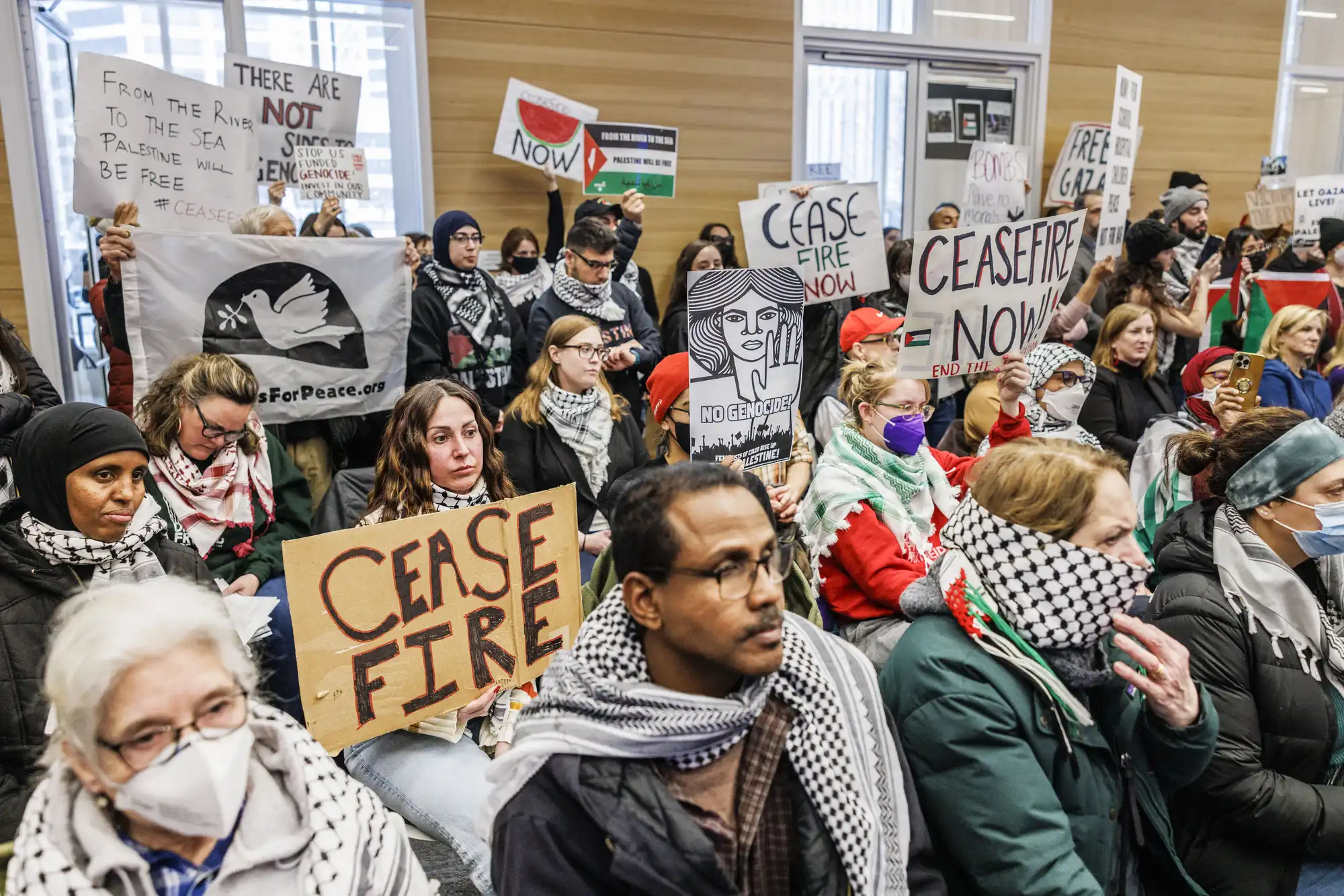Municipalist Strategy for Palestinian Solidarity
Over the past seven months of mass murder in Gaza, local activists around the United States have successfully pressured their city councils to pass resolutions demanding an immediate ceasefire. Indigenous activists have accomplished the same with powerful resolutions by their tribal governments linking their own history of dispossession to that of the Palestinians. More than sixty ceasefire resolutions have passed, from Chicago to tiny cities like Port Townshend, WA. These have served to communicate the dissatisfaction of the bulk of the Democratic Party’s base with the Biden administration’s policy of acting as an accomplice to genocide. While important, particularly in an election year, such efforts have wielded city and tribal governments in primarily symbolic ways. This demonstrates the extent of our opposition, but does not materially deprive the Israeli occupation and war machine, except indirectly to the degree that it might influence Congress or President Biden. Local campaigns around ceasefire resolutions are, therefore, only the beginning. This Nakba Day (May 15), the Institute for Social Ecology and the Municipalism Learning Series are convening a panel discussion on what might come next, beyond ceasefire resolutions.
In this conversation, we will reflect on our organizing work to pass ceasefire resolutions on the local level and envision what strategic fronts exist in city and tribal governments for targeting the occupation regime in much more concrete ways. Cities across North America have equipment contracts with the likes of HP and Caterpillar, who play key corporate roles in the Israeli occupation. Local governments invest pensions in hedge funds and private equity, with enormous pools of capital that could potentially be divested from firms that are targets of the international boycott, divestment, and sanctions movement. The economic weight of local governments is substantial, and we should consider them a key terrain for Palestinian solidarity work. And as the political divide between Democratic Party leadership and their voters widens over Biden’s heartless and criminal response to the current slaughter, municipalist organizers may push in the direction of “rebel cities” against the imperialist brutality of the federal government.
Join us on May 15 at 3pm Pacific/6pm Eastern for this important discussion. Spanish and ASL interpretation will be available, and a recording will later be posted to YouTube. Speaker details and bios to follow.


